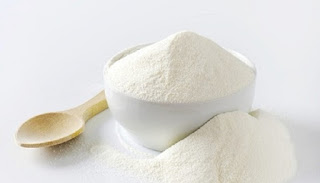Allulose is a type of sugar commonly used in soft drinks, energy drinks, and snack foods. Allulose is also referred to as D-Psicose and is a very low-calorie, sugar-free sweetener found in many popular foods and beverages. First discovered in wheat over 70 years ago, allulose has been found naturally in some foods like raisins, oranges, various berries, and other foods. Today, there are thousands of commercial products containing allulose.
Unfortunately, the health benefits of allulose are not yet known. However, allulose is significantly sweeter than other natural sugars such as sucrose, glucose, and lactose. This difference may be due to the way allulose reacts when it is exposed to oxygen. When exposed to air, allulose molecules from a long chain, which releases a burst of energy in the form of heat. Heat is what makes many commercial sweeteners, such as Splenda, much sweeter than sugar would be.
Allulose was used as an alternative to sucrose and glucose when sugar alternatives became unavailable because of technological advancements. In the past, most medical products used glycemic index charts to rate sweeteners based on their ability to raise blood sugar levels. However, allulose has only been evaluated by the Cosmetic Ingredient Review Expert Panel on one occasion. Because of this limited information, no regulatory bodies have approved the product.
Because of its high sugar content, allulose should not be consumed by diabetics. It may also raise blood pressure and heart rate. It should also be avoided by people with intestinal disorders, kidney disorders, glaucoma, and liver problems. Some studies have also shown that the material can irritate some types of skin, especially the lips. Therefore, while it is quite delicious, it should be consumed sparingly.
Allulose has been in the global marketplace for about ten years. Before that, it was only available in the United States and Canada. Since the product took hold in the European and Asian markets, allulose has become almost ubiquitous. Other manufacturers are beginning to produce allulose-based products in South Africa, Italy, Japan, and Malaysia. Since it is also produced in the Caribbean, allulose can even be found in Grenadines.
Allulose has a wide range of benefits. It is considered to be a low-risk, high stability carbohydrate. It also provides low-calorie and hypo-energetic properties. It is also believed to be quite safe when consumed in appropriate amounts. One study performed by researchers at the University of Illinois at Urbana-Champaign showed that when compared to refined carbohydrates, allulose had a significantly lower Glycemic Index (GI) level. The research also showed that there was a significant decrease in the insulin resistance index (IRI).
Allulose can be found in some common allulose products such as fish oil, sorbitol, and fructose. Besides, allulose is also produced in the lab. These allulose crystals are collected during a process called freezing. After a certain temperature is reached and allulose crystals begin to freeze, they start to get together. Although not all crystals will gel, due to a process called collagenization, this process makes allulose a stronger diuretic and laxative.
There are numerous benefits associated with the consumption of allulose. However, consumers should carefully consider the amount of allulose that they take, because too much can be just as harmful as too little. Users should also be aware of possible side effects caused by the use of allulose. As with any health product, it's important to check with the doctor before taking any herbal supplement.




No comments:
Post a Comment